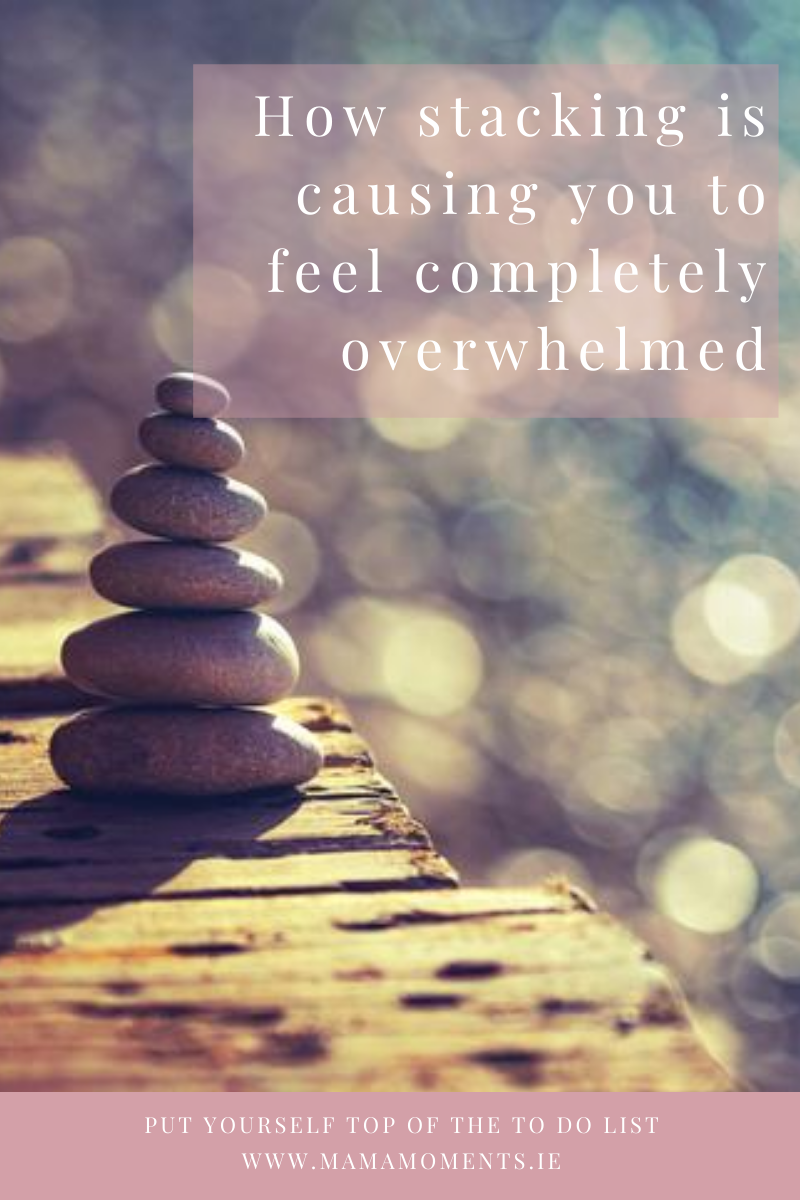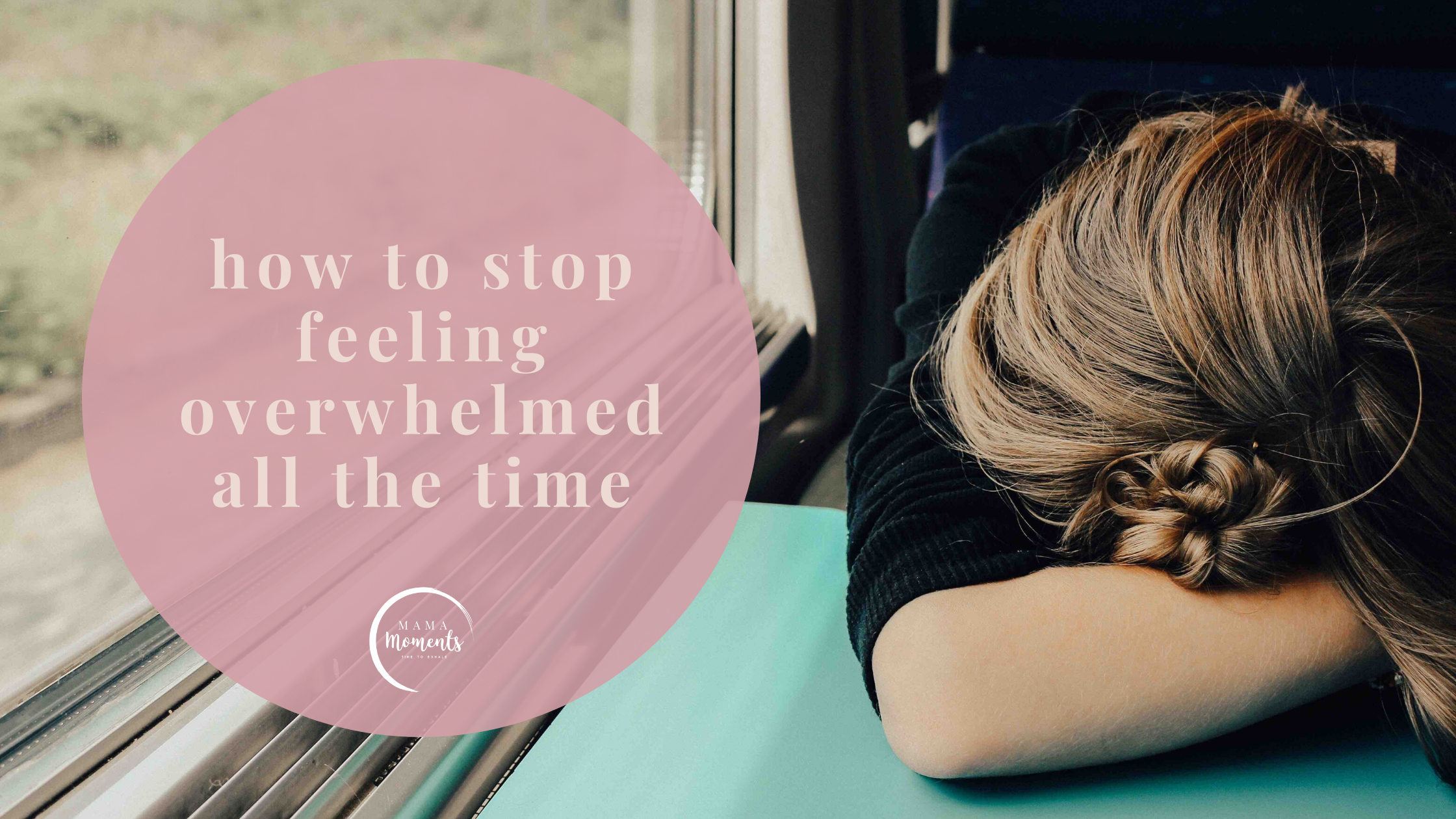
Picture this. Your phone is ringing from the kitchen. You’re halfway down the stairs carrying yet another load of washing in the overflowing wash basket. The edge of the basket is digging into your hip and you remember the ironing from yesterday's load is still sitting on the table waiting for a hot iron to be run over it. Your phone is still ringing and as you walk down the stairs, which you notice needs yet another vacuuming, you stand on a Lightening McQueen car which instantly roars loudly under your foot and you just about catch yourself. Your phone’s still ringing, the car is still groaning, and your blood pressure is rising. The dirty clothes bounce down the stairs with the basket as you lunge it down the last few steps and you give up, kicking Lightening McQueen to land on top of the pile of clothes.
Sound familiar or even relatable?
I’d like to say this is an unbelievable setup, but I think we’ve all been there to some extent or another as the to-do list grows, time diminishes, and stress rises as we add and add, stack and stack. In this scenario, the toy car was the last straw, and became the trigger in which stress took over. This is called trigger stacking and is something we have all experienced.
What is Stacking?
Our lives are incredibly busy. Between caring for our children, maintaining the house, planning, organising, and living, we have an enormous amount on our plates. When we attempt to get too much done all at once, we’re at risk of letting everything fall but even worse, we’re welcoming stress and anxiety with open arms.
We all have our triggers when it comes to the daily grind of getting things finished. For some it’s the dusting which never seems to be done, or the gardening with fast growing weeds, or like me, it’s the laundry and the endless conveyor belt of clean, dirty, clean, dirty clothes.
When we add and add and add to the list, we run the potential of stacking one problem on top of another and another and another until there’s a moment when we simply can’t take it anymore.
This is stacking and it’s not very helpful!
What Happens When We Stack?
We react badly. The overwhelm takes over and we’re unable to consciously and reasonably see through the fog of everything which needs doing. When our triggers hit us, in a noticeably short amount of time we become stressed out, anxious, overwhelmed and find we are not in a good place to manage even one task well.
This level of stress is often triggered by something quite small. In our scenario above, the trigger is the toy car but because you’re already stressed about the laundry and the ironing, everything else implodes and your reaction to vault the laundry to the end of the stairs in a wonderfully dramatic manner means your mood and your ability to manage any task is negatively affected. Again, not helpful at all.
How to Avoid Stacking
We all have our stressors and it’s a good thing to identify what yours are. Even better, we should take note of the more subtle elements of life which can act as a trigger as we unknowingly stack. By making our stressors smaller and avoiding our triggers we set ourselves up for a good day. In many ways, if we also solely focus on our trigger we are avoiding it from toppling over the to-do list. For instance, if we spend a few days focusing on the one thing which habitually triggers us into a bad mood, like the laundry, and forget about everything else which needs doing, like vacuuming the stairs, we eliminate that task as a trigger and we can finish that task with little to no stress.
By recognising our triggers, we can turn the table on them and release their ability to act as something which can spark anxiety or stress. Like most things in life, how we react to certain things will have a big impact on how we manage and cope with them.
We’ve talked before about the importance of having realistic expectations about what we can and can’t do in a day or a week. Even in a solitary moment. With so much on our to-do list, it can feel impossible to avoid overloading ourselves but picking one thing to focus on at a time is a pretty important step to steer ourselves away from being overwhelmed.
If you find yourself stacking and losing the ability to manage, figure out what those one or two things are which end up being too heavy with the potential to bring the whole load down. We can overcome our triggers and stressors by taking control of them.

